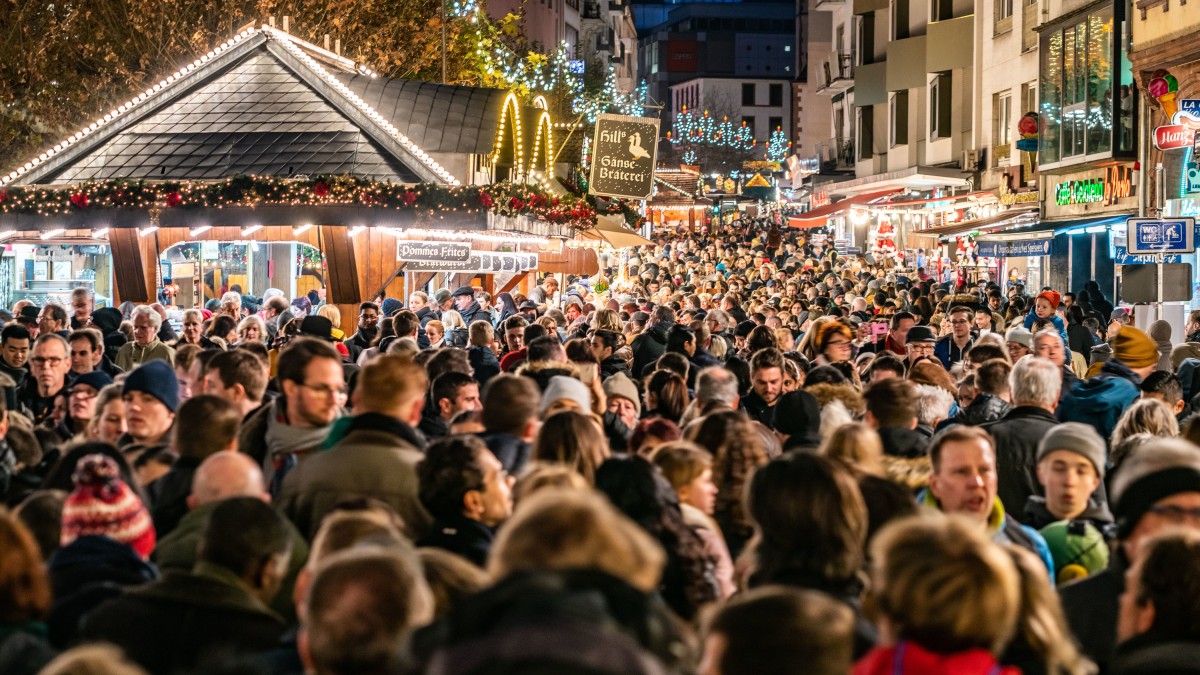The first explorations in the families have already begun and serious negotiations are likely to follow soon. Who can visit their grandparents at Christmas without exposing them to an increased risk of infection? How many friends or relatives can celebrate with each other in good conscience without endangering themselves and others? Is singing under the Christmas tree dangerous to the public this year? Should it be better to save on alcohol? Or is that pure hysteria? Unpleasant disputes are unlikely to be avoided.
In any case, politics has begun to prepare the country for unfamiliar Advent and Christmas festivities. Be creative and drive the holidays “in shifts”, this was recommended on Tuesday by the Federal Government’s Care Commissioner, Andreas Westerfellhaus. In order to minimize the risk of infection, contacts should be reduced, also with relatives. Christmas should be “straightened out” as much as possible, he said image. He advised you to celebrate with fewer people and several times instead. “You can give presents on December 28th or even later,” suggested Westerfellhaus. “Different households could celebrate together on different days.”
The nursing officer advises “staggered” visits
Even in normal operation, many Germans find it difficult to refrain from habits they have grown fond of. That could be even more painful at Christmas, especially when it comes to old people and high-risk patients. At the moment it is still uncertain whether all elderly people can be visited in care facilities, the care officer continues. “Not all relatives can come to the homes on Christmas Eve.” He therefore strongly advises “staggered” visits. According to Westerfellhaus, up to 20 rapid corona tests per resident and month will be made available in the coming weeks.
Test deliveries and training courses are currently being prepared. When asked whether one should bring old relatives out of the nursing home for Christmas, there could be “no general answer”. Especially in corona hotspots, everyone should think carefully about this. In the spring, a rigorous closure of homes for some nursing home residents and people with dementia caused their condition to deteriorate. The fact that people are separated from their families even when they die should not be repeated.
Federal Health Minister Jens Spahn and Federal Chancellor Angela Merkel absolutely want to avoid a rigorous isolation of old people’s and nursing homes like in the spring, when many people had to die alone because of the pandemic. But no one knew exactly how to do that. The German Foundation for Patient Protection recently criticized this sharply. Uniform corona rules for nursing homes are overdue. Foundation board member Eugen Brysch said the situation of the 900,000 people in need of care in Germany’s homes was depressing. “They are the most vulnerable group in the Corona crisis. At the same time, however, they are also the quietest.” For more than half a year they have been waiting for clear guidelines for their protection.
The churches in Lower Saxony have meanwhile announced that they will keep their houses of worship open in the future as “consolation for everyone” during the corona pandemic. The leader of the Greens in the Bundestag, Katrin Göring-Eckardt, called on all German parishes to provide rooms for concerts and the pre-Christmas care of elderly people. “We as a society now have to think about how we ensure that nobody has to be alone. We should carefully enable what is possible,” she said Süddeutsche Zeitung. Families are also asked to rethink. “We have to be prepared for the fact that we cannot celebrate Christmas with 20 people like in previous years,” said Göring-Eckardt.
Many markets are canceled, but not all
But a stroll along with mulled wine at the Christmas market will not be a matter of course this year. A number of municipalities are still wrestling with what is responsible. On the one hand, jostling is incompatible with infection protection. On the other hand, many artisans who are already troubled, but also small businesses and restaurants, fear for their existence. In Nuremberg, however, the decision was made to cancel the world-famous Christkindlesmarkt. In Munich and Bayreuth, however, the markets should take place with a slimmed-down program. In Munich, where the market is due to start on November 23, there is a mask requirement at the stands, which are set up at intervals of five to ten meters from one another. Alcohol can only be consumed with registration and in catering areas.
Many smaller markets such as in Fürth or Coburg, however, are canceled. The same applies to Cologne, Düsseldorf, Aachen and Duisburg in North Rhine-Westphalia. In Essen, on the other hand, there will be a Christmas market, albeit with “mulled wine gardens” where people should drink without too much exercise. In Leipzig, mulled wine and bratwurst stands were banned, but the Christmas market itself is allowed. The Striezelmarkt in Dresden is also to take place, but some traders are to move from the Altmarkt to the Elbe. A step pyramid with a historic Ferris wheel is planned, regardless of fear of infection. The Christmas market in Erfurt was canceled, as was the one on Berlin’s Gendarmenmarkt.
At Berlin’s Breitscheidplatz, on the other hand, where a total of twelve people died in an attack in 2016, it should be allowed to celebrate with plastic sheeting and distance. The markets in Heilbronn, Freiburg and Karlsruhe have been canceled, as well as in Frankfurt am Main and Mainz. In Stuttgart and Mannheim they are on the brink. Lower Saxony and Bremen are also still considering.
– .

